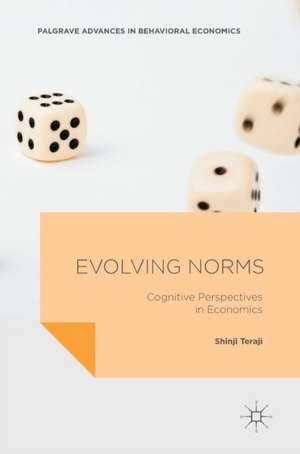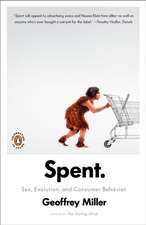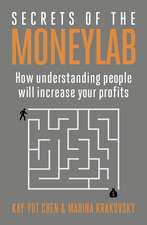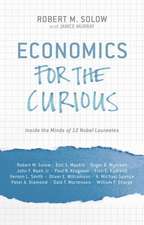Evolving Norms: Cognitive Perspectives in Economics: Palgrave Advances in Behavioral Economics
Autor Shinji Terajien Limba Engleză Hardback – 8 iun 2016
Preț: 645.79 lei
Preț vechi: 759.76 lei
-15% Nou
Puncte Express: 969
Preț estimativ în valută:
123.59€ • 128.55$ • 102.03£
123.59€ • 128.55$ • 102.03£
Carte tipărită la comandă
Livrare economică 14-28 aprilie
Preluare comenzi: 021 569.72.76
Specificații
ISBN-13: 9781137502469
ISBN-10: 1137502460
Pagini: 333
Ilustrații: XV, 355 p. 7 illus.
Dimensiuni: 148 x 210 x 24 mm
Greutate: 0.57 kg
Ediția:1st ed. 2016
Editura: Palgrave Macmillan US
Colecția Palgrave Macmillan
Seria Palgrave Advances in Behavioral Economics
Locul publicării:New York, United States
ISBN-10: 1137502460
Pagini: 333
Ilustrații: XV, 355 p. 7 illus.
Dimensiuni: 148 x 210 x 24 mm
Greutate: 0.57 kg
Ediția:1st ed. 2016
Editura: Palgrave Macmillan US
Colecția Palgrave Macmillan
Seria Palgrave Advances in Behavioral Economics
Locul publicării:New York, United States
Cuprins
1 Foundations.- 2 Why Do People Obey Norms?.- 3 The Sensory Order Revisited.- 4 Norms, Coordination, and Order.- 5 Culture and Cultural Evolution.- 6 Co-evolution of Mind and Society.- 7 Epilogue.
Notă biografică
Shinji Teraji is Professor of Economics at Yamaguchi University, Japan. His research is mainly concerned with behavioral economics, institutional economics, and economic methodology.
Textul de pe ultima copertă
This book presents institutional evolution and individual choice as codependent results of behavioral patterns. Drawing on F.A. Hayek's concepts of cognition and cultural evolution, Teraji demonstrates how the relationship between the sensory and social orders can allow economists to track social norms and their effects on the global economy. He redirects attention from the conventional focus on what an individual chooses to the changing social order that determines how an individual chooses. Cultural shifts provide the environmental feedback that challenges the mental models governing individual choice, creating a cycle of coevolution. Teraji develops a general framework from which to examine this symbiotic relationship in order to identify predictive patterns. Not just for behavioral economists, this book will also appeal to those who specialize in institutional economics, the philosophy of economics, and economic sociology.
Caracteristici
Argues that cultural norms and institutions coevolve Shifts from conventional focus on what people choose to how they choose Presents a framework for predicting behavioral and institutional patterns






















